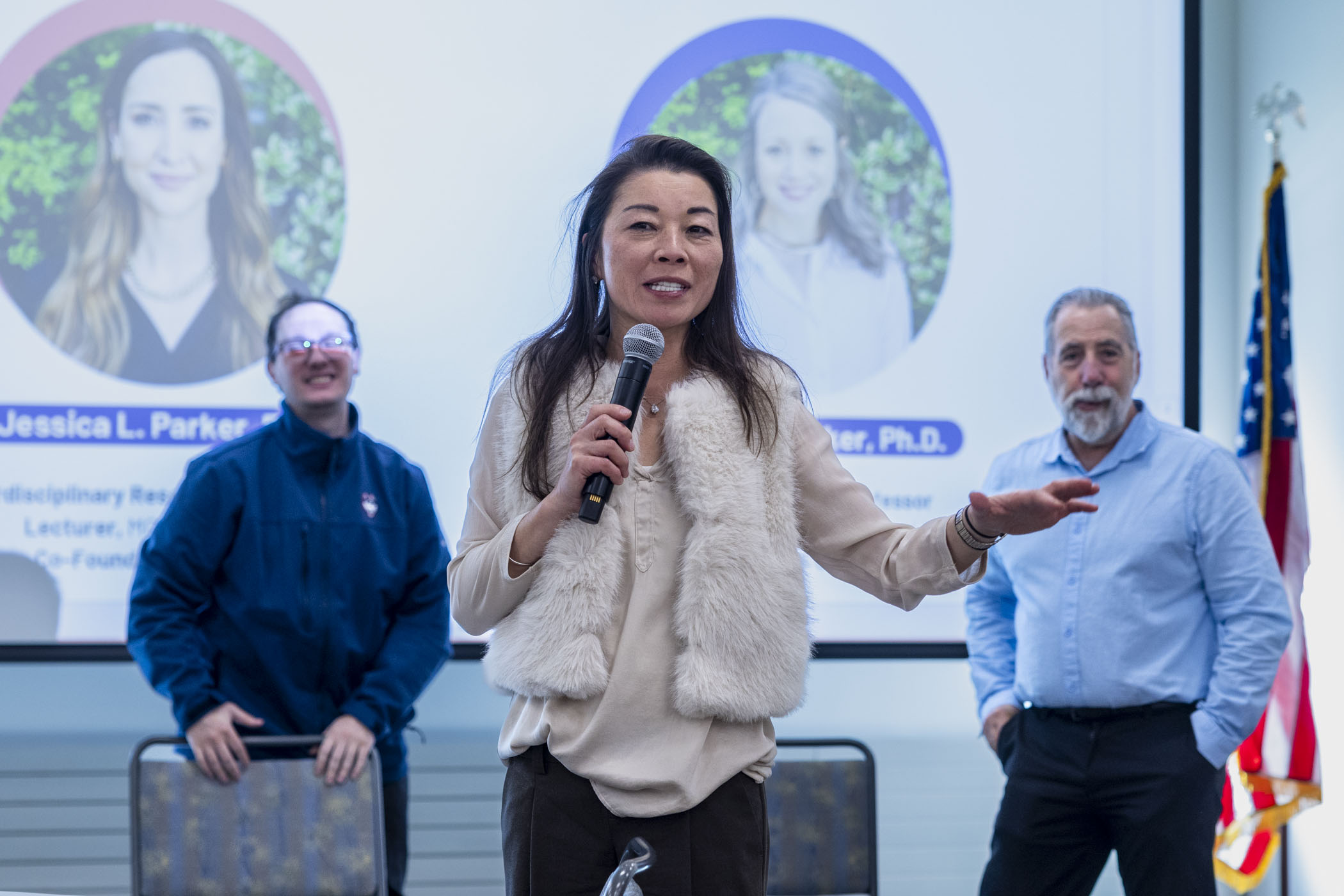All Kinds of Smart
Having studied learning and brain development with a particular focus on literacy and dyslexia for decades, psychiatrist and cognitive neuroscientist Fumiko Hoeft understands more than most the variations in the ways people think and learn.
Hoeft, who currently serves as UConn Waterbury campus dean and chief administrative officer, has partnered with UConn engineering professor Arash Zaghi to launch the Neurovariability Initiative at her campus. The pilot program aims to create an environment where students are empowered to succeed based on their strengths, and where educators are equipped to support diverse ways of thinking and problem-solving — critical skills for today’s workforce and tomorrow’s leaders.
“Our goal is to cultivate an environment where every student’s potential can be maximized — regardless of how they process information,” says Hoeft.
“This is about unlocking talent that’s often overlooked — not by lowering the bar, but by rethinking how success is defined, supported, and scaled,” adds Zaghi.

Co-created by Hoeft and Zaghi, both of whom bring lived experience as dyslexic, ADHD-identifying individuals — and as parents of neurodivergent learners — the initiative integrates educational neuroscience, responsibly implemented AI tools, and Universal Design for Learning (UDL) into a cohesive framework.
According to the creators, it offers a forward-looking, research-based approach to education that focuses on talent development and innovation. Grounded in neuroscience and learning science, it recognizes that differences in how students think and process information are natural and valuable — not obstacles to overcome.
Rather than relying on labels or diagnoses, this model is about improving educational systems to better serve all learners, according to Hoeft.
This initiative complements university-wide efforts such as CETL’s inclusive teaching programs and UConn Engineering’s Include Program, which also emphasize neuroinclusivity, faculty training, and the responsible use of AI in education.
“The Neurovariability Initiative is a powerful example of how the Waterbury campus is leading with science, innovation, and compassion,” says UConn President Radenka Maric.
“By recognizing that students think and learn in different ways, and by designing systems that build on those strengths, this initiative reflects our UConn-wide commitment to empowering every learner and preparing them to thrive in a rapidly changing world.”
Big ideas come from out of the blue.
Behind every breakthrough, there’s a story of creativity and commitment. One where individuals come together, fueled by a shared vision and sustained by imagination and persistence.
Latest UConn Today
- UConn John Dempsey Hospital Nationally Recognized for Excellence in Stroke and Heart Attack CareUConn John Dempsey Hospital has once again been nationally recognized for delivering high-quality, lifesaving care—earning three major 2025 awards from the American Heart Association.
- UConn’s Journalism Major Offers Pathways to Legal CareersThrough courses like Media Law and Investigative Reporting, journalism students get early exposure to the legal world — inspiring some alumni to pursue law school and careers in public service.
- For Restoring Biodiversity Look for Help from the Humble, World-building Muskrat'These important aquatic rodents transform habitats in many ways that some communities, like the Native Americans, have appreciated for 1000s of years, and Western science is just now discovering that importance'
- World-First Gene Editing Trial for Rare Genetic Disease at UConn HealthUConn Health and Connecticut Children’s have made history by dosing the first patient in a clinical trial using gene editing to treat glycogen storage disease type 1a (GSD1a)
- Professor Sir Cato T. Laurencin of UConn Honored by the American Institute for Medical and Biological EngineeringSir Cato T. Laurencin, M.D., Ph.D., K.C.S.L, was the designated honored guest at the American Institute for Medical and Biological Engineering (AIMBE) President's Circle Reception in Washington, DC.
- School of Nursing Class of 2029 Student Profiles: Abigail Griffiths and Katherine WojtasMeet two out-of-state students who share a passion for nursing













